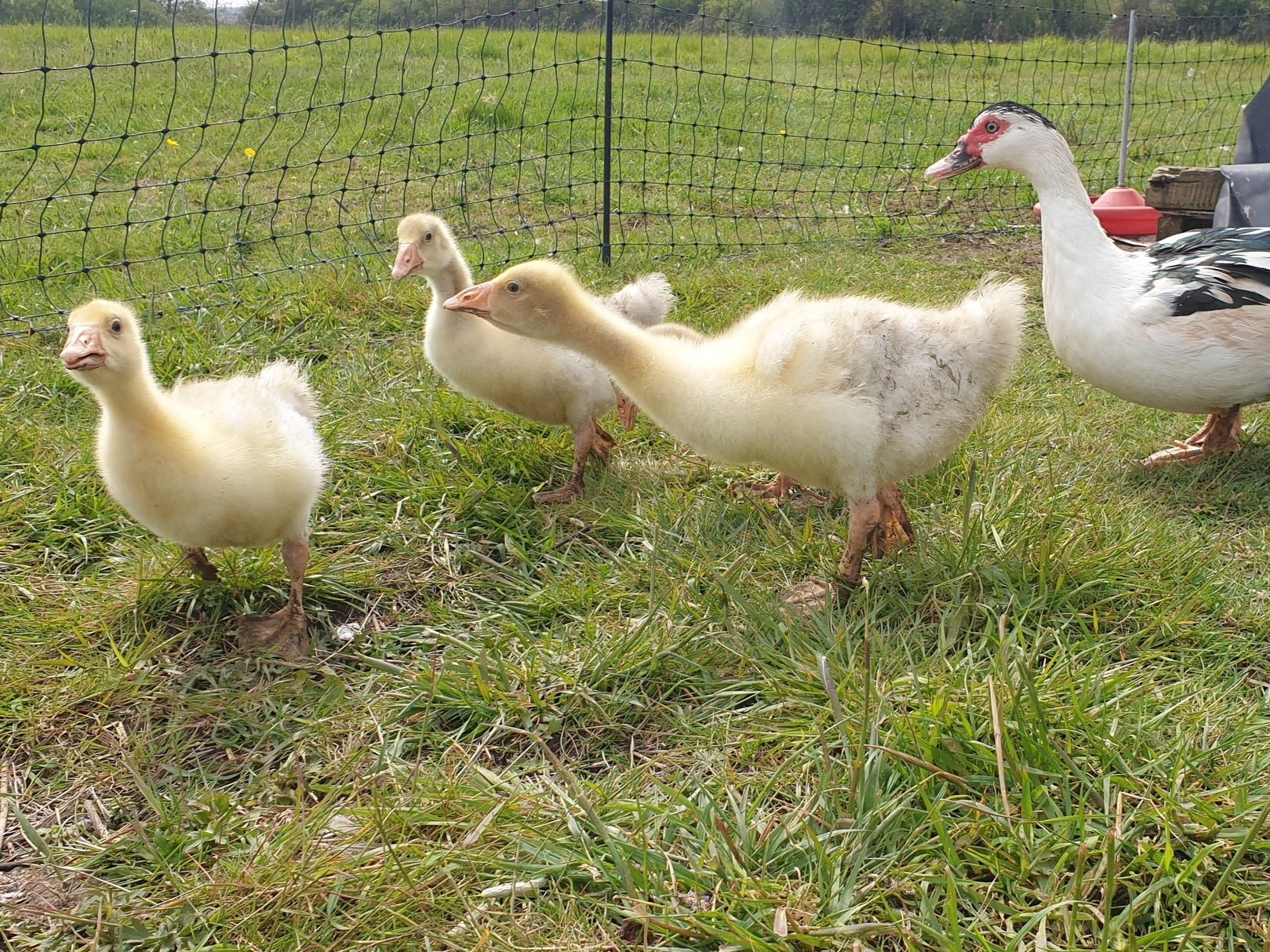CAN DUCKS LIVE WITHOUT A POND?
Can ducks live without a pond? Definitely. Should they? That’s another matter.
I have a complicated relationship with ducks. I honestly think they’re beautiful birds with some of the most fun and quirky characteristics. However, they are also the grubbiest, foulest, grimiest beings on the planet. Their magical powers enable them to change fresh water into muddy sewage in a matter of seconds. They’ll run through vegetables snacking on snails yet dibble their way across a paddock leaving a trail of crap behind them.
The one question I’m often asked is Can Ducks Live Without A Pond? And the answer is, yes.
Female lavender muscovy and silver appleyard
Pond vs. Puddle
In my opinion, ducks do not require a pond. In fact, unless you have a large, deep water pond with an island for the ducks’ safety from predators, trying to have a duck pond is more hassle than it’s worth. However, that is not to say they don’t need water - they definitely do.
Unlike chickens, ducks need water to keep their plumage clean and their feathers waterproof. In addition, they cannot pick at water as other poultry do. Instead, they need to be able to dunk their beaks beneath the surface. So though you don’t need a pond, you need water of some kind in something larger than a puddle or chicken drinker.
Khaki campbell drake and hens
Duck Ponds
Having a beautifully landscaped duck pond sounds like a marvellous idea. I want one too; I can imagine those little gorgeous ornamental mandarins paddling across the surface amongst the lilies, rushes and whirring dragonflies. Sadly, in reality, unless you have a lake and just two ducks, you pond will quickly become a stagnant mess.
That’s because ducks poop in the water. The dibble along the pond margins, looking through the dirt for insects and spitting out soil as they go. They dive beneath the surface, stirring up all the silt and destroying any aquatic ecosystem in place. And so after a few months, all that remains is a muddy banked hole in the ground with brown water.
There are ways to help of course; smaller ponds with drainage outlets so you can circulate the water is one option. A good filtration system can also help, and when this is combined with pond plants, a relative harmony can be made. Stocking density, of course, also has a major impact on this. If you just want a few beautiful waterfowl on an aquascape, then it is achievable. And if you want to hatch some ducklings for yourself, check out my best hatching gear list.
Duck Baths
If you’re keeping ducks on your farm or in your backyard, I highly advise using a simple, moveable and easy to drain structure. Old children’s sandpits are ideal for this. They’re small enough to fill with water relatively quickly, light enough to move, and large enough for your ducks to get into and enjoy a drink and a bath. I’ve got a cute turtle one (like this from eBay) and you can often pick them up second hand.
Childen’s sandpits are ideal duck baths
Small water drinkers made for poultry tend to be emptied within hours, if not minutes. The ducks will sift through the water, spit it on the ground and continue doing so until the water is all gone. Then they’ll turn to the muddy patch beneath their feet.
In a static run, old baths can be landscaped into the scenery with the plug used to drain old water away before it’s refilled. But personally I prefer to use the old sandpit method whether it’s in an outdoor poultry run, a duck house or in waterfowl tractors.
Goslings on pasture
Lavender muscovies on pasture
Best Conditions to Avoid Mess
I currently pasture raise my ducks, moving the electric netting every couple of weeks, and I’ve found this to be the best method by far. The fresh grass and pasture keeps the ducks entertained so they spend a lot of time chasing flies and searching through the plants for bugs rather than destroying their bath. The sandpit baths can be tipped over and cleaned out easily and throughout the majority of the year, it’s mess free.
Of course, in the winter things get a little trickier but a couple months of mess versus an ongoing year-round battle is preferred!
If you’re going into duck keeping, go in with open eyes and muddy expectations. BUT … they are wonderful birds to keep and so long as you get their water situation correct, they’ll be a blessing rather than a curse.





